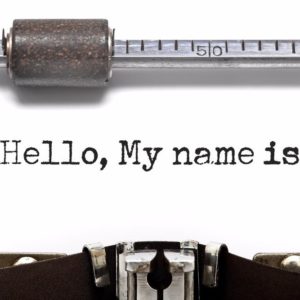

When Vulnerability Is A Strength – Not A Weakness
“I’m hanging out the window, in my dressing gown.”
Within the first 30 seconds of our first ever conversation, that was what Penny Haslam was telling me. And I instantly liked her for it.
She was referring to the fact I’d called her early doors (hence the dressing gown*) and the fact she gets rubbish mobile signal in her home (hence hanging out the window). I responded in kind by admitting I was also casually dressed, although my outfit included a fleece (very middle-aged of me).
We were only a couple of sentences into our call, but a long way into buying each other’s personal brands.
Because what Penny had done, inadvertently or not, was to immediately make herself vulnerable (and I’d responded in kind). After all, a dressing gown and a fleece aren’t the first things you’d think professional women like us would admit to wearing.
She showed me there was a human side to her that offset the impressiveness of her CV which, to someone yet to meet her, might be slightly overwhelming: she’s an ex-BBC journalist, TEDx speaker, winner of the PSA’s Speaker Of The Year award and a successful visibility coach working with FTSE 100 companies.
On the face of it, vulnerability has only negative connotations.
The dictionary describes it as: the quality or state of being exposed to the possibility of being attacked or harmed, either physically or emotionally.
But as Penny showed, it can also work in your favour when it comes to connecting quickly and getting buy-in to your personal brand.
Here’s what happens if you show no vulnerability at all.
In a recent interview, Scottish First Minister Nicola Sturgeon gave some insight into her regular meetings with the British Prime Minister Theresa May. She described May as stiff and defensive, saying, “This is a woman who sits in a meeting where it’s just the two of you and reads a script”.
She then gave the example of meeting May after the PM had completed a whirlwind foreign tour. Sturgeon said, “We sit down, it’s literally just the two of us, and I say, ‘You must be knackered.’ She said, ‘No! I’m fine!’ and it was as if I’d insulted her. It’s just impossible to get any human connection.”
And that’s what people are looking for…a human connection. Because when people buy into your personal brand, they’re doing it at an emotional, not a logical, level. However, if Theresa May was canny, she’d take a leaf out of another politician’s book.
Vulnerability can make friends from enemies.
Benjamin Franklin, the man who went on to become one of the Founding Fathers of America, was running for a second term as clerk of the general assembly. A colleague – someone of great influence – delivered a speech lambasting him and damaging his chances of success (although Franklin still won).
Afterwards, Franklin decided it would be beneficial to win his critic over, so he used his reputation as a book collector to approach the man, asking to borrow a rare book. His display of vulnerability was recognising the man had something Franklin didn’t. The rival was flattered and sent it straight away.
When Franklin returned the book a week later, he included a thank you note to strengthen the connection he’d made. The next time they met, the man spoke to him personally and they went on to become friends.
This strategy of showing vulnerability to an enemy in order to win them over has now been christened the Benjamin Franklin Effect.
It’s got to be balanced.
Of course, showing vulnerability and nothing else can indeed be detrimental. For example, people who use self-deprecation and spend their whole time pointing out their flaws do nothing to create a positive brand. But when it’s used to offset the confidence and credentials your personal brand has laid out before that, it can definitely be a strength.
Have you ever showed vulnerability and found it worked in your favour? Or has someone else’s vulnerability changed your opinion of them for the better? Your comments – as ever – would be greatly appreciated.
* Just to be clear – that’s not Penny in the photo 🙂







I really enjoyed this one Jennifer. I’ve always said that sharing vulnerability makes you real and likeable, unlike a robot. I agree that Teresa May is someone who doesn’t choose to share vulnerability and, in my humble opinion, this is why she is unpopular and not very likeable!
I think the same happened to Hillary Clinton – she got coached in how to be human, but it was never who she truly was. It was just the hand gestures and facial expressions, but no vulnerability on show.
Good One Jennifer. I think showing vulnerability is an act of self assessment or rather acknowledgement. It reflects your character as someone being true to yourself. The important part however is the manner in which this gets presented
That last point is definitely important Amit. Thanks